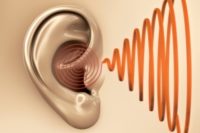Some Boston Marathon explosion victims suffer “hidden” ear trauma

 Two homemade pressure-cooker bombs exploded within seconds of each other near the finish line of the Boston Marathon on April 15, 2013, killing three people and seriously injuring hundreds. Some who escaped physical harm realized days or weeks later they were suffering from hearing problems, according to the Washington Post.
Two homemade pressure-cooker bombs exploded within seconds of each other near the finish line of the Boston Marathon on April 15, 2013, killing three people and seriously injuring hundreds. Some who escaped physical harm realized days or weeks later they were suffering from hearing problems, according to the Washington Post.
Harvard Medical School researchers studied the extent of the ear injuries suffered by Boston Marathon bombing victims and their findings have been published in the journal Otology & Neurotology.
Research targeted 94 people -- adults and children -- who were treated at hospitals and clinics in the Boston area on the day of the blast and in subsequent days or weeks.
Nearly all had good hearing quality before the explosions but suffered from potentially serious hearing problems after. Ruptured ear drums were among the most common damage.
Ear drum damage healed on its own in 38 percent of cases. Some victims underwent surgery or other therapies to treat the damage, and others suffered permanent damage, according to the research.
Researcher found if anyone had a more significant injury they were very likely to have an ear injury. The study said people presenting themselves for treatment should have been screened for ear injuries.
Some people didn’t realize until much later that they had lasting hearing problems.
The loudness of a bomb exploding can result in temporary deafening, and might have taken people a few days or weeks to realize they could not hear from one or both ears, according to research.
Symptoms like dizziness might have surfaced at some time after the blast. Oothers experienced tinnitus (ringing noise in the ears) that still negatively affects them, according to the study.
Rarely in the United States is there so many victims suffering from blast-related injuries in a civilian setting. Much of the existing research on the impact of blasts on the ear has focused on war-zone injuries.
About half of the Boston cases involved patients who had been within 10 feet of the blasts, though some people experienced ruptured ear drums as far away as 20 feet from the bombs; others, who were as close as 5 feet, did not.
Some patients have "hidden hearing loss," according to the study. They report problems hearing, or complain that their hearing is now worse than it was before the bombings, but basic hearing tests didn't pick up on a measurable problem, according to the research.
They might be suffering from more sophisticated hearing problems that perhaps affect their ability to hear in loud rooms or in environments where there are competing noises, the study said.
Researcher plan to use sophisticated tools to discover "hidden hearing loss" that isn't picked up by standard testing.
Looking for a reprint of this article?
From high-res PDFs to custom plaques, order your copy today!





